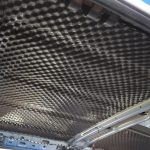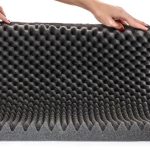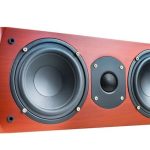There’re certain things you can do to enhance your car music experience. One of the easiest ways of making music sound better in your car is by adding sound-deadening materials. A car cabin usually works as an extra cabinet over the speakers. As such, internal and exterior noise in a car can interfere with the kind of sound you’ll get. Road noise and engine noise are major causes of poor sound in a car. You can reduce such noise by soundproofing your car. All you need to do is to add sound deadeners to your car. Read on through this article to learn more about sound-deadening material, what they are, and how you’ll benefit by adding them to your car.
What Are Sound Deadening Materials?
Sound deadeners are products that assist in reducing the level of noise that gets into your car. They work by insulating the car panels from noise. They absorb and keep away most of the road and engine noise when driving. For instance, when these materials are added to the panels, they add to the mass of the panel, thereby making it more effective in resisting noise from passing through. Some of the materials also work by absorbing most of the noise. They also help in keeping most of the sound within your car, thus you won’t make a lot of noise to other motorists and pedestrians with your loud music.
Forms and Types of Sound Deadening Products
Sound deadeners come in different forms and types. Each type is ideal for application in certain car areas. Here’re the main forms and types of sound deadeners and their areas of application:
1. Sound Deadening mats
Acoustic mats are made of a thick insulation material that absorbs noise. The thicknesses of the mats depend on the manufacturer. Thicker mats may absorb more noise but would be heavier and more challenging to install. Generally, most mats are hard to install around tight spaces. They’re best for installation on the floor, roofing, door panels, and the trunk.
2. Fiberglass insulation
Fiberglass insulation is a material made of tiny glass particles. They come in the form of rigid boards. They work by trapping sound waves, thereby preventing noise from passing through. Since the material is solid, it’s hard to install around corners. Thus, they’re best for application on panels. They come in different thicknesses and widths.
3. Acoustic Sprays and Foams
Acoustic sprays and foams are other types of sound deadeners. They come loaded in a spraying can. They’re sprayed on the desired car surface to soundproof it. As the spray cures, it expands and pushes firmly onto the panel. They work by absorbing and dispersing vibrations. Acoustic sprays and foams are ideal for application in tight car areas where other materials such as fiberglass and mats cannot be installed.
4. Reflective insulation
Another soundproofing product is reflective insulation. Reflective insulation is a great addition to enhancing the effectiveness of insulation mats. They block out more noise from the noise blocked by mats. Thus, if mats are not effective enough, you can add reflective insulation to enhance noise cancellation. Moreover, reflective insulation enhances the temperature in your car by keeping it warm during winter. Reflective insulation should be applied underneath acoustic mats for the best results.
Benefits of Adding Sound Deadening Materials

Here’re some of the benefits you’ll enjoy by dampening your car with sound deadeners:
1. Reducing road and Engine noise
If you own a classic car, then you’ll have more noise to deal with. Older cars often lack good mechanisms to keep road noise away. Driving some cars can be quite draining and fatiguing due to noise such that listening to music becomes a challenge. Most of the noise enters through the door panels and the floor. When driving, especially along a rough road, the car panels tend to resonate and vibrate. The vibrations cause rattling. Rattling can be quite annoying and noisy. The rattling leads to a poor sound experience. You can apply sound deadeners to your car panels to reduce rattling noise, vibrations, engine noise, and road noise. With these noises reduced, you’ll enjoy clear, quality sound in your car. Moreover, you’ll be able to make and receive noiseless hands-free calls in your car.
2. Reducing noise from loud exhausts and tires
Some car owners love modifying their car exhaust systems to make them louder. However, loud exhausts are quite noisy. Some exhausts can even overwhelm the loudest car music system. If you love loud exhausts and you still want to enjoy listening to music, then you might find it challenging to enjoy music. Luckily, you can reduce the exhaust noise by adding sound deadeners. This way, you’ll still have your loud exhaust making noise out there and still enjoy quality music within your car.
Some tires also tend to be quite noisy. As they roll along the road, they can create a lot of noise that is loud enough to make your can music dull. Luckily, good sound deadeners can be applied on the inner panel around the wheel areas to reduce tire noise.
3. Improving the effectiveness of your car speakers
Another benefit of adding soundproofing materials to your car is that you’ll make your car speakers more effective. Most car doors have a speaker hole and holes for the window control mechanism. The sound that comes from the front side of a speaker is almost equivalent to the sound that comes from behind the speaker. If these sounds mix, they’ll often cancel each other, especially for low frequencies. As such, you’ll get low-quality bass. However, if the door panel is treated with a layer of a sound deadener, the sound from behind the speaker won’t cancel out with the sound from the front area. As such, you’ll enjoy enhanced sound quality, especially enhanced bass output.
4. You’ll make your car feel more comfortable
Besides improving the sound quality in your car, soundproofing products can also make your car feel more comfortable. You’ll get to enjoy a quiet car cabin. You’ll drive long distances without being fatigued by road noise and engine noise. Moreover, sound deadeners also work as heat insulators. They block the heat that comes from the engine, road, and direct sunlight. As such, you’ll enjoy a cooler car cabin, especially during summer, and enjoy a warmer cabin during winter.
In conclusion….
By adding sound-deadening materials to your car, you’ll dampen the car such that you’ll hear all music details clearly. Quiet tones will be more alive since unwanted noises will be reduced. In short, reducing background noise improves the signal-to-noise ratio of a car stereo. For instance, if your car stereo volume level is set at 90 dB, and the background noise level is at 85 dB, any parts of a music track that are around 85 dB will compete with the background noise. If you can reduce the noise level to 75 dB, you’ll hear more details of your music.
Michael Evanchuk is a San Francisco-based sound engineer with 20 years’ experience installing, troubleshooting, and repairing commercial, automotive, and household sound equipment. Evanchuk owns an auto stereo center, where he offers highly competitive car audio installation and repair services. He has written dozens of articles on different sound engineering topics, all of which have been published in leading journals, blogs, and websites.





